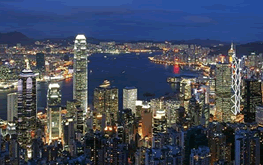About Slow Food Hong Kong
Slow Food Hong Kong is a chapter, or convivium, of Slow Food International, a global, grassroots organization linking the pleasure of good food with a commitment to local communities and the environment. Since its inception in 1989, Slow Food International has grown into a global movement with millions of supporters and members in over 150 countries.
Slow Food Hong Kong was conceived in 2000 by a group of passionate food enthusiasts who wanted to explore and share their love of good, clean, fair food and celebrate the diverse cultures that make up Hong Kong.
What does the “Slow” in Slow Food mean?
The “slow” in Slow Food does not necessarily refer to the speed of food production or consumption. In a fast-paced food and finance capital like Hong Kong, residents lead busy and rushed lives. Fast and convenient food is often an important factor. But of equal, if not greater, importance to Hong Kongers are variety, nutrition, quality, and taste.
The definition of the term “slow” is a broad sense of respect. “Slow” food is a cuisine, an ingredient, or a product that reflects a respect for its growers, for the quality of its source, for its nutritional value and its taste, for its journey to our plates, and for its consumers. “Slow” food means good, clean and fair food.
How did the Slow Food movement begin?
The Slow Food movement began as a protest at the site of the first intended McDonald’s in Rome. The fast food industry was beginning to build a significant presence in Europe in the mid-1980s. Modern fast food threatened to create a homogenous food culture and deepen an already growing chasm between a food’s source and its consumer. Chains of large franchises replaced the diversity of independent establishments. The priority on profit replaced the quest for quality. Restaurants became the end point for assembly line food production, shipped in from industrial factories in distant locations.
Why is Slow Food important to Hong Kong?
 Here in Hong Kong, many local residents can recall foods, traditions, and recipes that have been lost to time and fast food culture. Dishes cooked by mothers and grandmothers are no longer readily available. We have also lost our access to biodiverse ingredients; about 90% of our produce is imported from large agricultural operations in China and other countries. And with the lack of labeling and information from producers and the all-too frequent occurrence of food production scandals, we Hong Kongers must also question the safety of these food products to our health.
Here in Hong Kong, many local residents can recall foods, traditions, and recipes that have been lost to time and fast food culture. Dishes cooked by mothers and grandmothers are no longer readily available. We have also lost our access to biodiverse ingredients; about 90% of our produce is imported from large agricultural operations in China and other countries. And with the lack of labeling and information from producers and the all-too frequent occurrence of food production scandals, we Hong Kongers must also question the safety of these food products to our health.
With large food producers’ diminishing commitment to safety, nutrition, and quality, we at Slow Food Hong Kong believe our right to good, clean, fair food is at threat.
Therefore, it is our responsibility to educate ourselves and our community in “slow food”. It is our imperative as global citizens to cultivate a healthy respect for the growers and producers, for the sources, for the methods, traditions and cultures, for the journey, and for the preparers of the food on our plates in order to have the access, the knowledge, and the freedom to choose how we nourish ourselves and our loved ones.